Spotlight
Taking the initiative: Fed-up residents in an Eastern Cape village try to build their own clinic
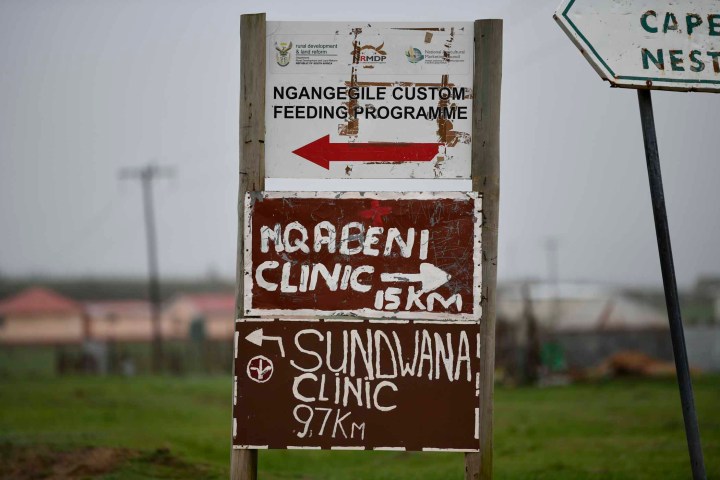
Despite glaring poverty and unemployment plaguing the village of Ngquthu near Dutywa in the Amathole district in the Eastern Cape, villagers pooled their meagre resources to refurbish what was once a preschool in an effort to turn it into a community health facility. As Luvuyo Mehlwana reports, government is hindering the project.
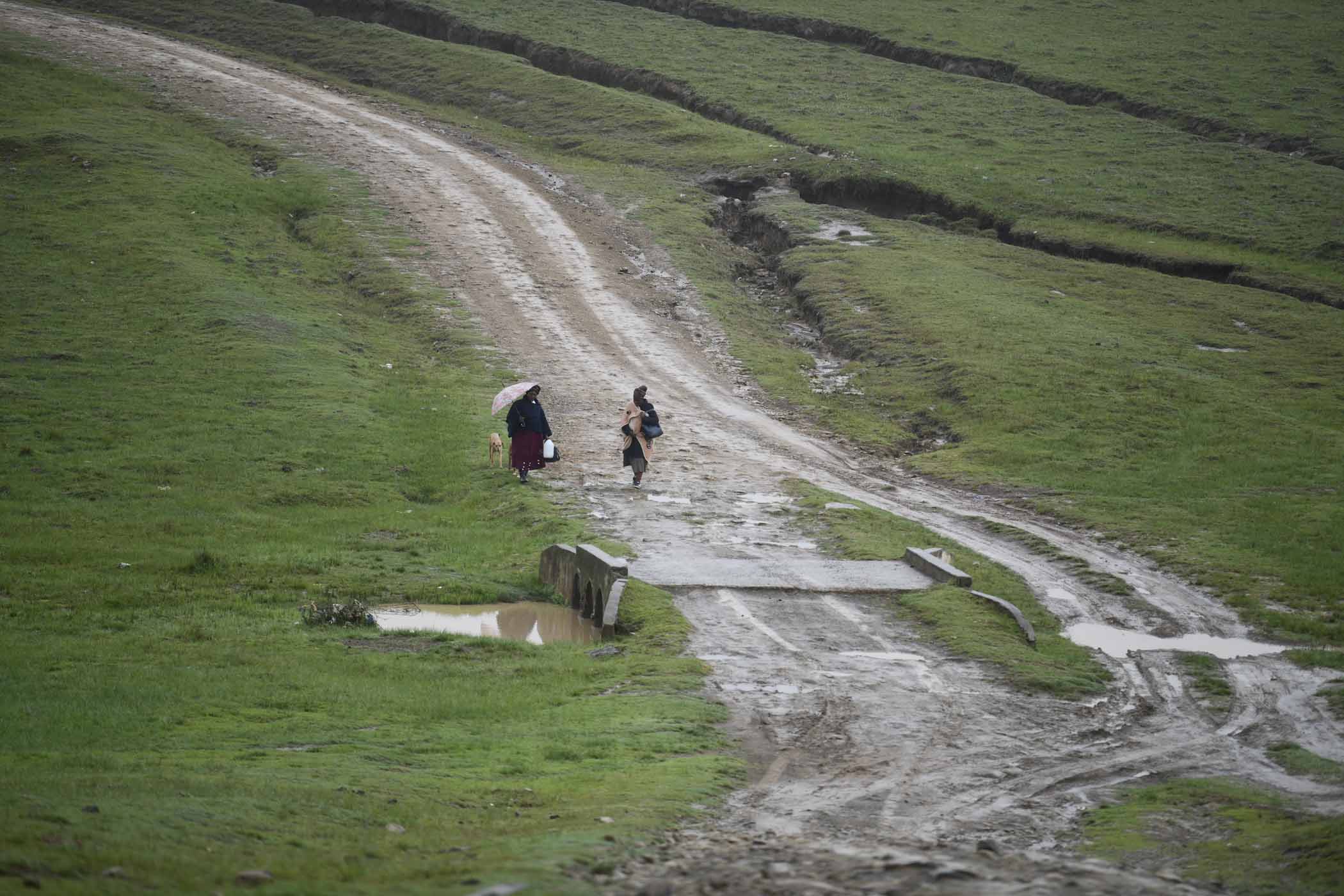
Residents in rural villages of the Amathole District in the Eastern Cape spend hours walking many kilometres of rough territory and harsh element to get to the nearest health facility. PHOTO: Black Star/Spotlight
Accessing healthcare services is a daily struggle in one of the Eastern Cape’s rural towns. Residents of Ngquthu near Dutywa, 148km north of East London, say they risk their lives by having to travel more than 15km on dangerous roads to seek medical help.
This situation eventually prompted villagers to take matters into their own hands.
Dutywa is one of the economic hubs of the rural former Transkei. Despite the glaring poverty and high unemployment plaguing Ngquthu, villagers pooled their resources to refurbish what was once a preschool and turn it into a community clinic.
A once-off contribution of R100 from every household helped kickstart the homegrown project.
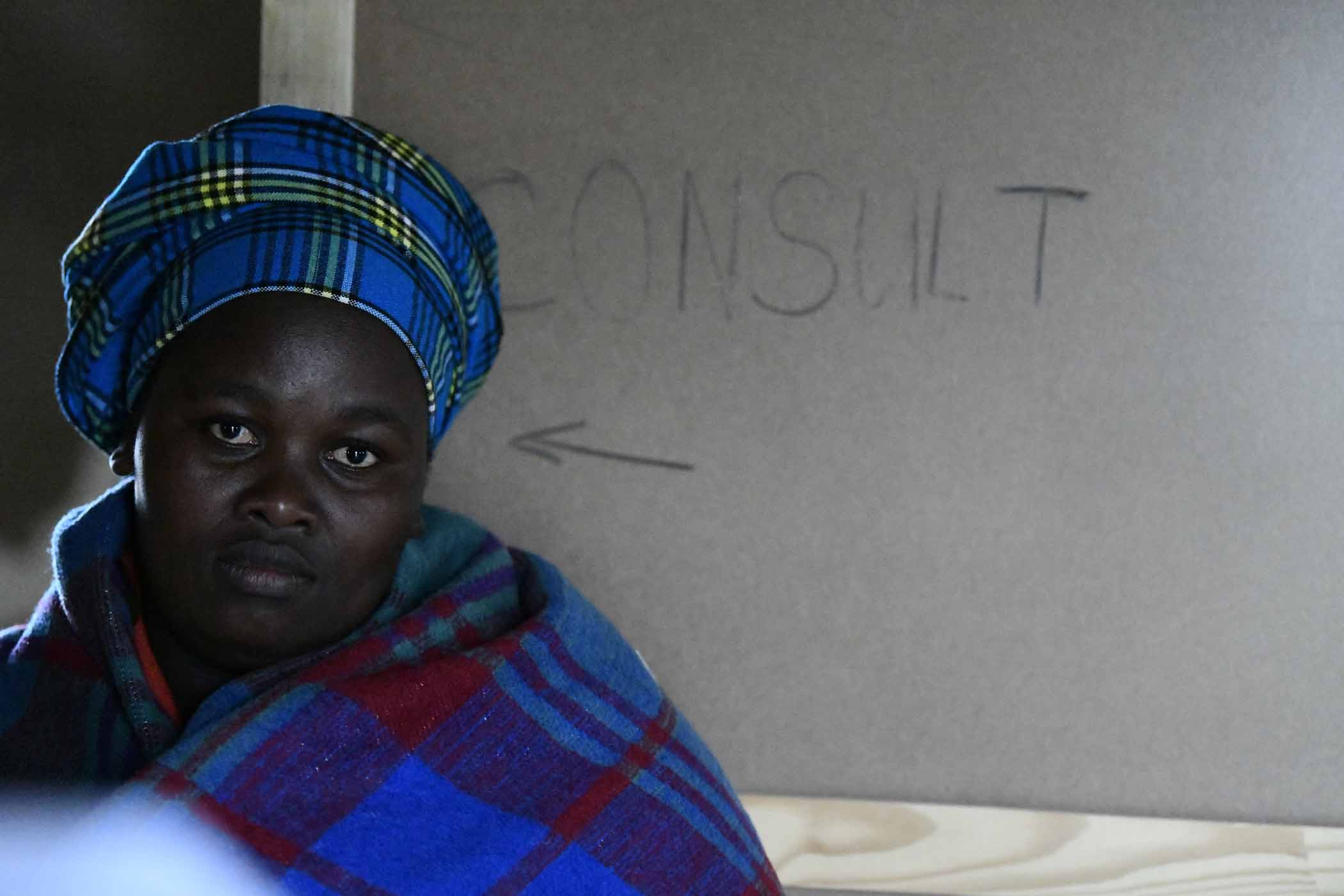
Ngquthu resident, Noviwe Dyubhele serves as committee secretary. PHOTO: Black Star/Spotlight
Reaching health facilities is unsafe
The community decided something had to be done after reports of people being mugged and raped while walking to and from the nearest clinic. Residents have to wake up as early as 5am to walk about 15km to Nqabara clinic, their nearest health facility.
According to local residents, four women were raped on their way to the clinic last year.
In February this year, fed up with the surge in criminal activity, mostly targeted at women and children, the community called an emergency meeting with the police, social workers, ward committees and their local councillor.
Noviwe Dyubhele, secretary of the committee that facilitated the project, tells Spotlight they were angry at what she calls “government inaction at bringing a health facility to their doorsteps”.
“We decided to act after a teenage girl, on her way to the clinic, was accosted by panga-wielding men who raped her towards the end of 2019.
“We could not just sit back and watch while our children were being targeted by criminals who hide in nearby bushes between our village and the clinic,” Dyubhele says.
“There is a mobile clinic that comes once a month, but there are times when it fails to pitch for several months, much to the anger of patients who depend on it, like the elderly, pregnant women and chronic patients.
“The mobile clinic used to operate from one of the houses in the village, but the house owner recently moved back into the house. We have to stand under a tree while waiting for [the] mobile clinic [and] we don’t know whether it will arrive.
“That is why we want to build a one-stop clinic for all our needs,” she explains.
Daily struggles and selling pipe dreams
Another local resident, Sivuyile Guzu, says he is passionate about the initiative. He too has suffered while walking the long distance to the Nqabara clinic. Guzu says he braved rain and cold weather, adding that he was constantly in fear of criminals.
“Accessing health services in our village is a daily struggle for the sick and those battling with chronic diseases. Those who can afford to pay transport fares do so at a high cost ranging from R180 to R240 per single trip to Nqabara clinic, Dutywa clinic or Butterworth hospital.
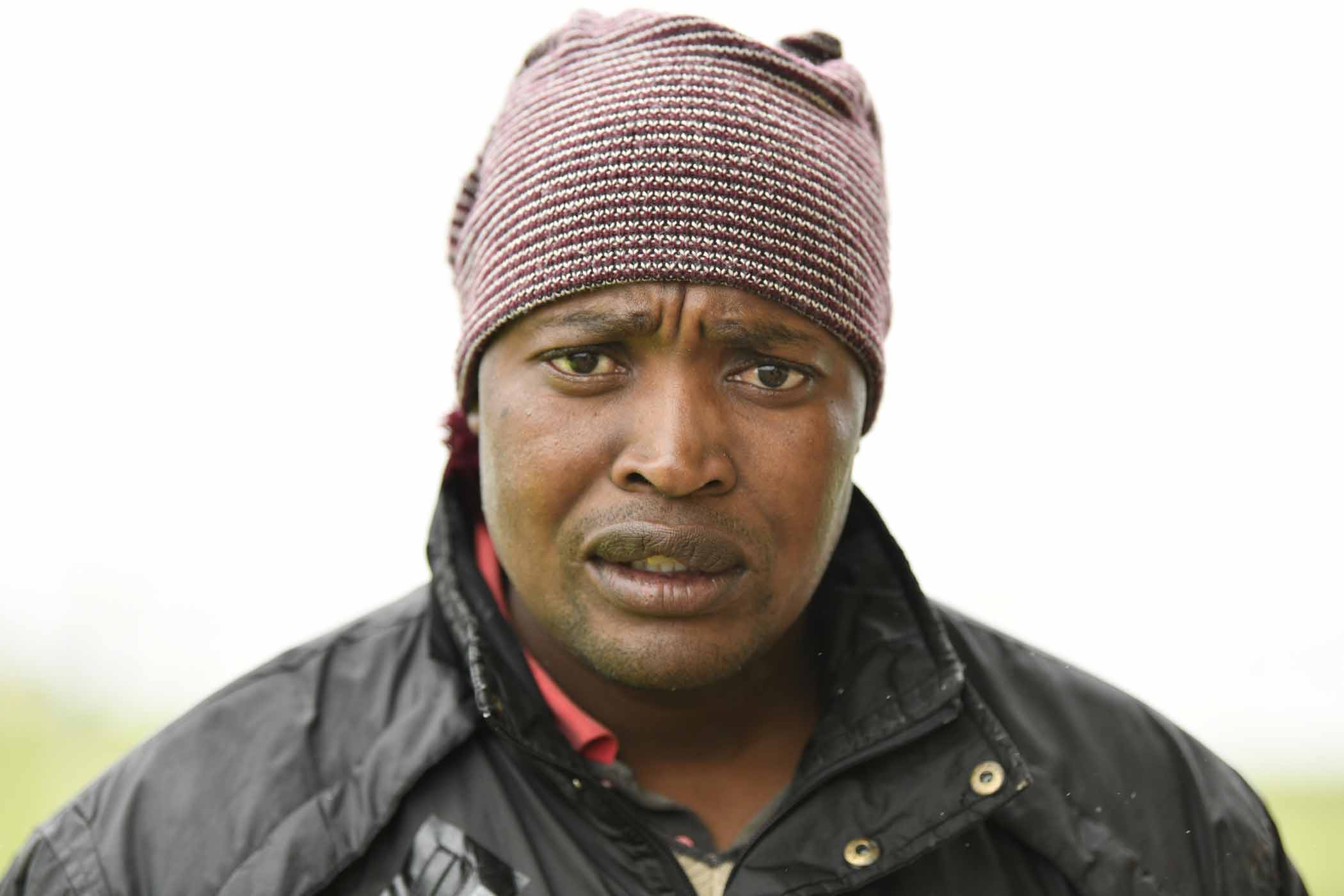
Ngquthu resident, Sivuyile Guzu says says he braved rain and cold weather, adding that he was always afraid of criminals on the way to Nqabara Clinic, 15km away. PHOTO: Black Star/Spotlight
“The free healthcare that our government has been promising us is a pipe dream because there is no shred of development in that regard. We have to get money for transport from loan sharks because the government is doing nothing while we are sinking in debt.
“The journey to Nqabara clinic is not easy as patients who can’t afford private transport face the daunting task of navigating the Nqabara river.
“This has resulted in patients dying at their homes because they can’t afford to hire public transport, and ambulances also take a long time to respond.
“More often than not, young children miss their immunisation treatment owing to their mothers failing to cross the flooded river, especially when it is raining,” says Guzu.
Sydney Class, chairperson of the clinic that is still under construction, blamed the Eastern Cape government for failing to act despite the community having engaged them on numerous occasions.
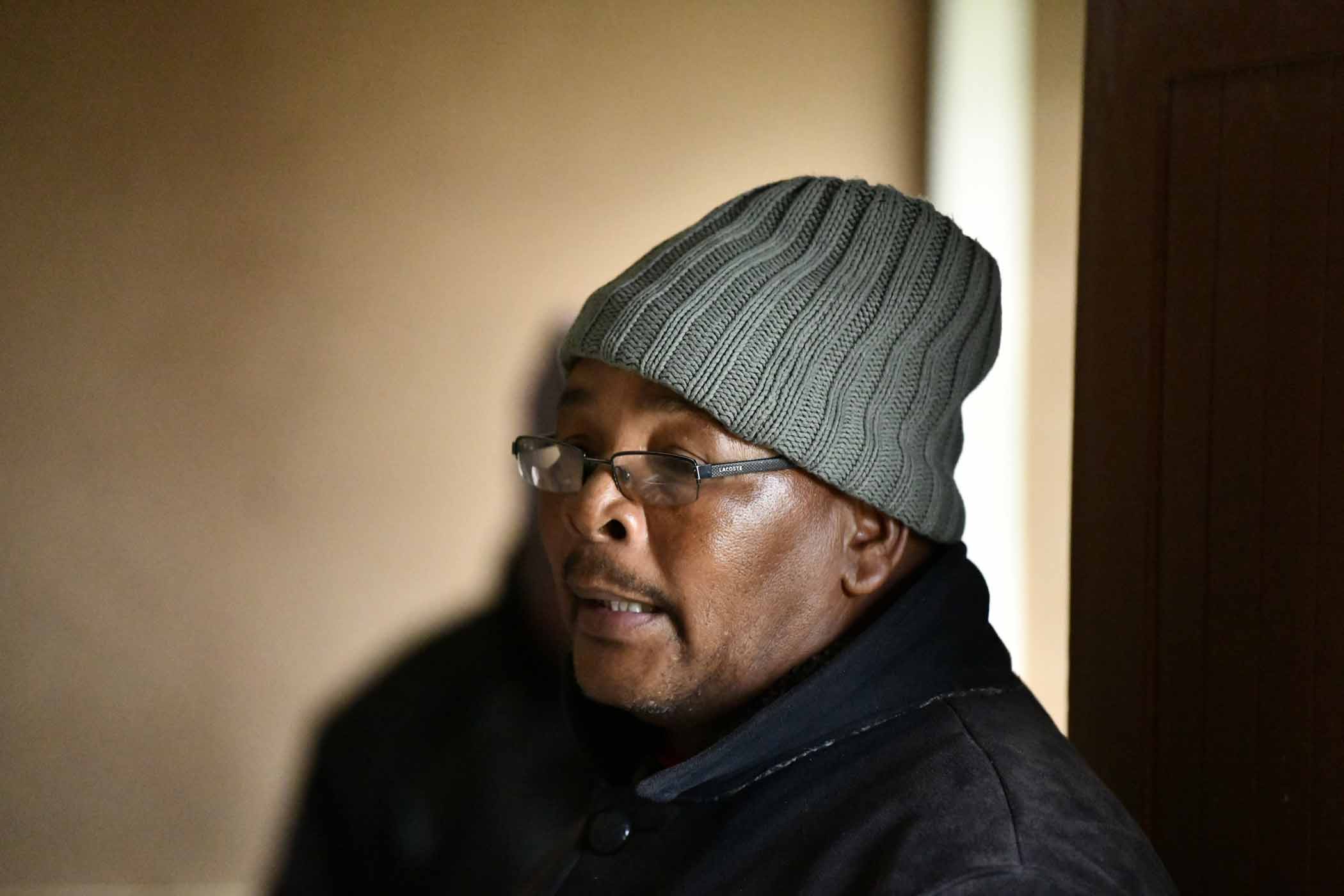
Ngquthu resident, Sydney Class who chairs the committee driving the community’s ‘clinic’ project, says the community hopes the health department won’t abandon them now that they’ve decided to come on board. PHOTO: Black Star/Spotlight
“For many years we have been begging the Eastern Cape health department for a clinic, but our pleas have fallen on deaf ears.
“Every time we voice our need for a clinic, our government is not listening as they sing the same tune for the past 15 years, telling us there is no money for a clinic,” says Class.
“Villagers agreed that each household would donate R100 to buy building materials. We approached a local carpenter to build stud walls and partition them in order to create rooms, and everything was done up to par.
“So far we spent nearly R15,000 for materials and labour, transforming the old preschool to make life easier for us,” he says.
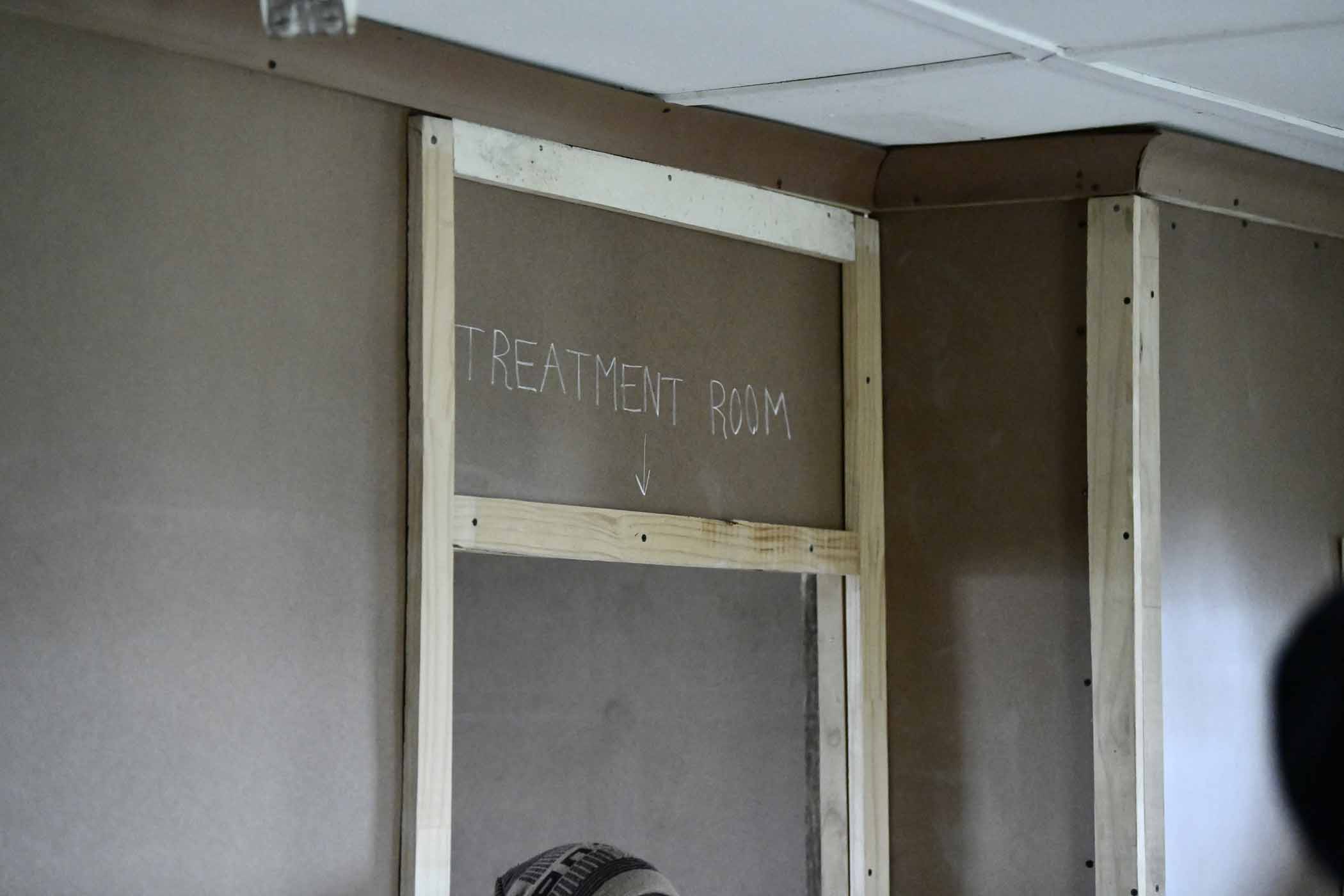
The Ngquthu community’s health facility will have a reception area, three consulting rooms, and a dispensary. PHOTO: Black Star/Spotlight
“The project is known to the department, although we have not entered into a written contract with them,” he says.
“Officials from the departments of health and public works gave our building the thumbs-up, but then ordered us to stop construction, telling us they would provide the resources needed to finish what we had started.
“We were optimistic that by the end of this year the project would be completed and ready for use by patients in December. However, we have been anxiously waiting for the officials to arrive since August.”
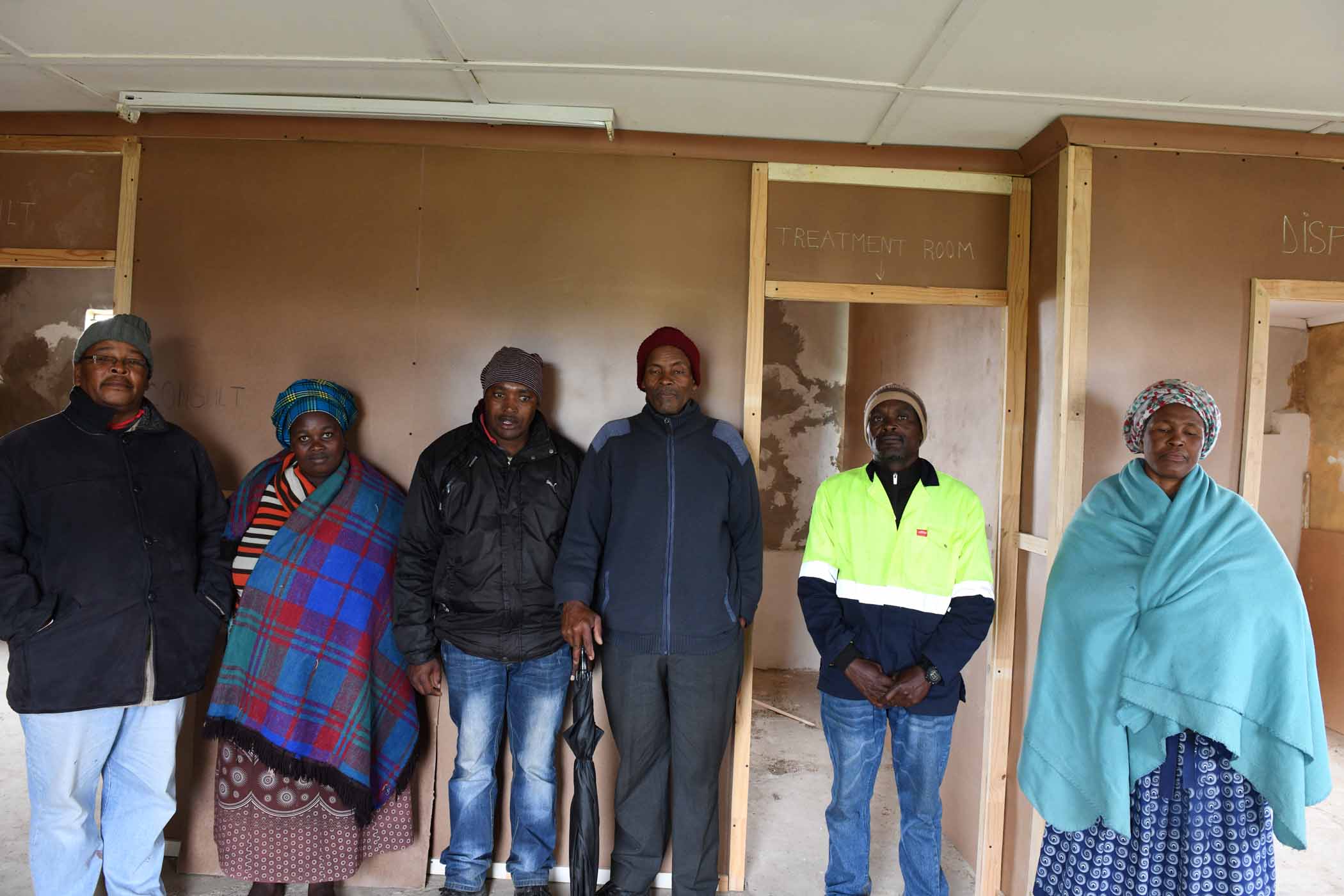
Each household in Ngquthu donated R100 to buy building material to convert an old preschool into a community health facility. PHOTO: Black Star/Spotlight
Meeting the community half way
Class says the community hopes the department won’t abandon them now that they’ve decided to come on board.
“At least this poor community has shown the government that we are able to meet them half way by building our own future.
“It was not easy to fundraise for the project, given that most families depend on old age and child support grants,” he explains.
“If this project fails to materialise, it is tantamount to having our dreams for a better life being stolen from under our noses.”
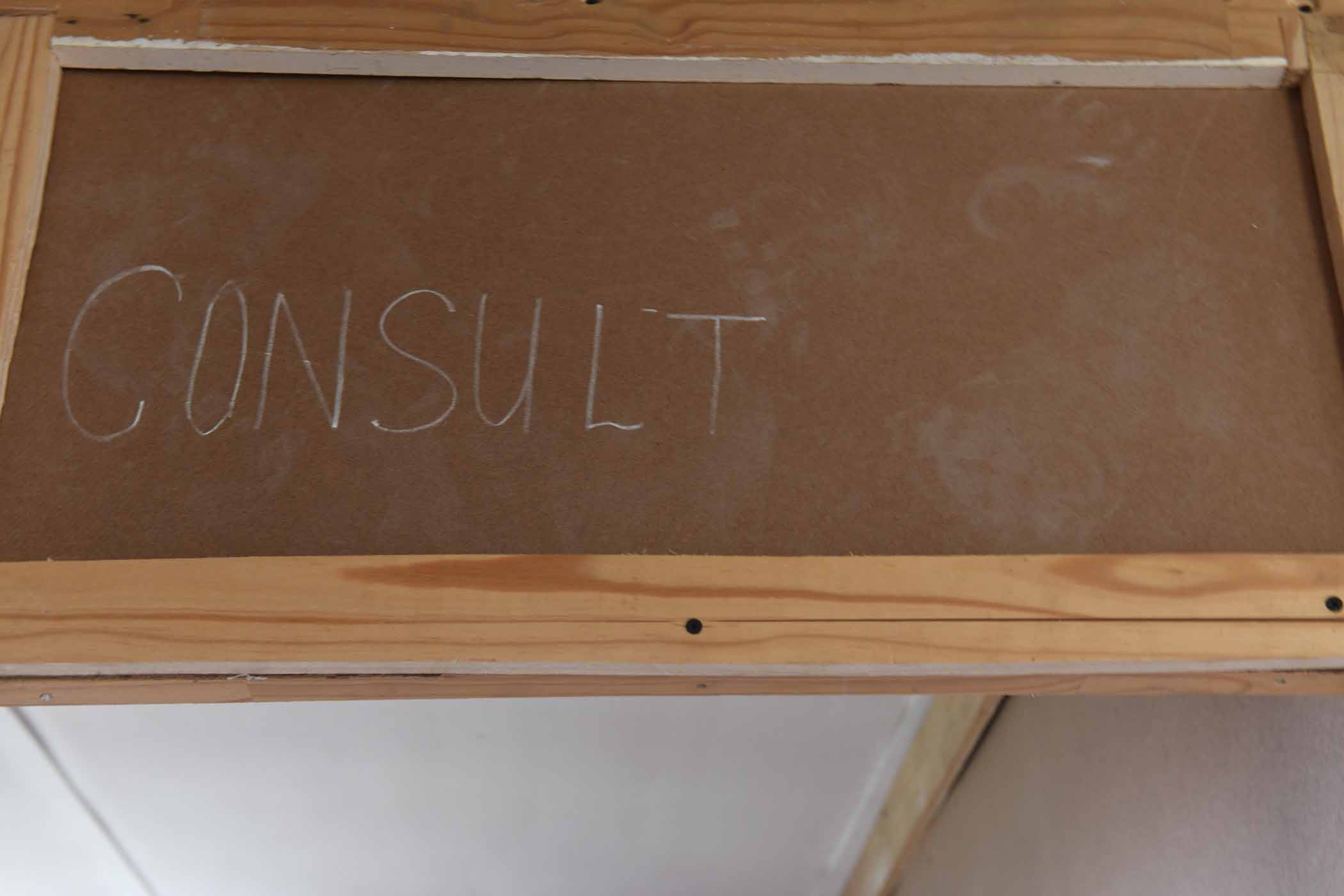
A local carpenter already started building stud walls and partitions for treatment and other rooms. PHOTO: Black Star/Spotlight
The residents are worried after a similar project in Mankosi in Ngqeleni came to a standstill after the government allegedly failed to provide staff and the necessary equipment for a village clinic.
In 2010, Mankosi residents raised R250,000 from their own pockets to build the clinic. Now, 20 years later, there is still no clinic and villagers are forced to walk 17km to Philani clinic in Ntshilini village.
Things are looking more promising in Nquthu, where the facility has a secure fence, a reception area, three consulting rooms and a dispensary. Once completed, it will cater for eight villages in and around Ngquthu.
‘Health post’ – not a ‘clinic’
However, the district director of health in the Amathole region, Sindiswa Gede, has rubbished claims that the community is building its own clinic.
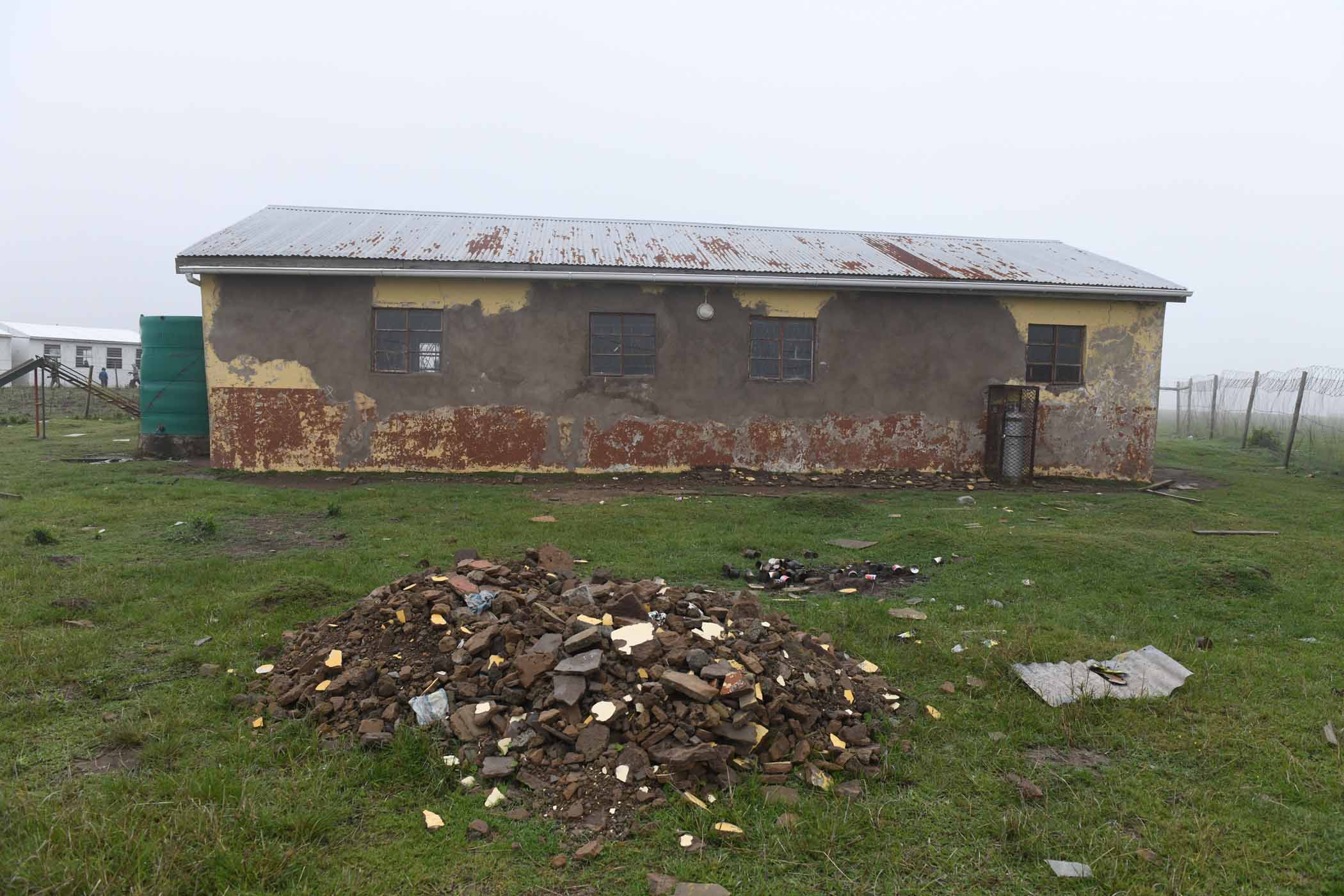
The old preschool that the community is converting into a health facility. PHOTO: Black Star/Spotlight
“We have a clinic in that area. The provincial departments of health and that of public works took over the project of renovating the old preschool to operate as a health post, not as a clinic,” Gede says.
“We normally ask chiefs to provide land where mobile clinics can be stationed. If that point is difficult to be reached by all community members due to long distances, we open either a satellite clinic or a health post.
“[The] health post is not a clinic, but ensures that people have improved and frequent access to primary healthcare.”
Gede referred Spotlight to department spokesperson, Siyanda Manana, after we pressed her for details about when the health facility would be opened, the number of staff to be posted there, what services they would offer and why the mobile clinic that used to visit the area had suddenly stopped coming.
Manana said the departments of health and public works were still finalising the memorandum of understanding on taking over the renovations and procurement processes.
“The public works department is due to draw up the scope [of work] for the project and once renovations are done, we are going to have our staff that are going to manage the facility and the medical equipment would be moved in,” he said.
“The mobile clinic was discontinued due to low numbers in that area. The success of that health post will depend on the numbers of people using it. As the turn-out increases, we are going to make a way forward,” he said.
But community member Mbulelo Twani is concerned over the time it is taking for the facility to open, given the amount of money and effort they have already invested in the project.
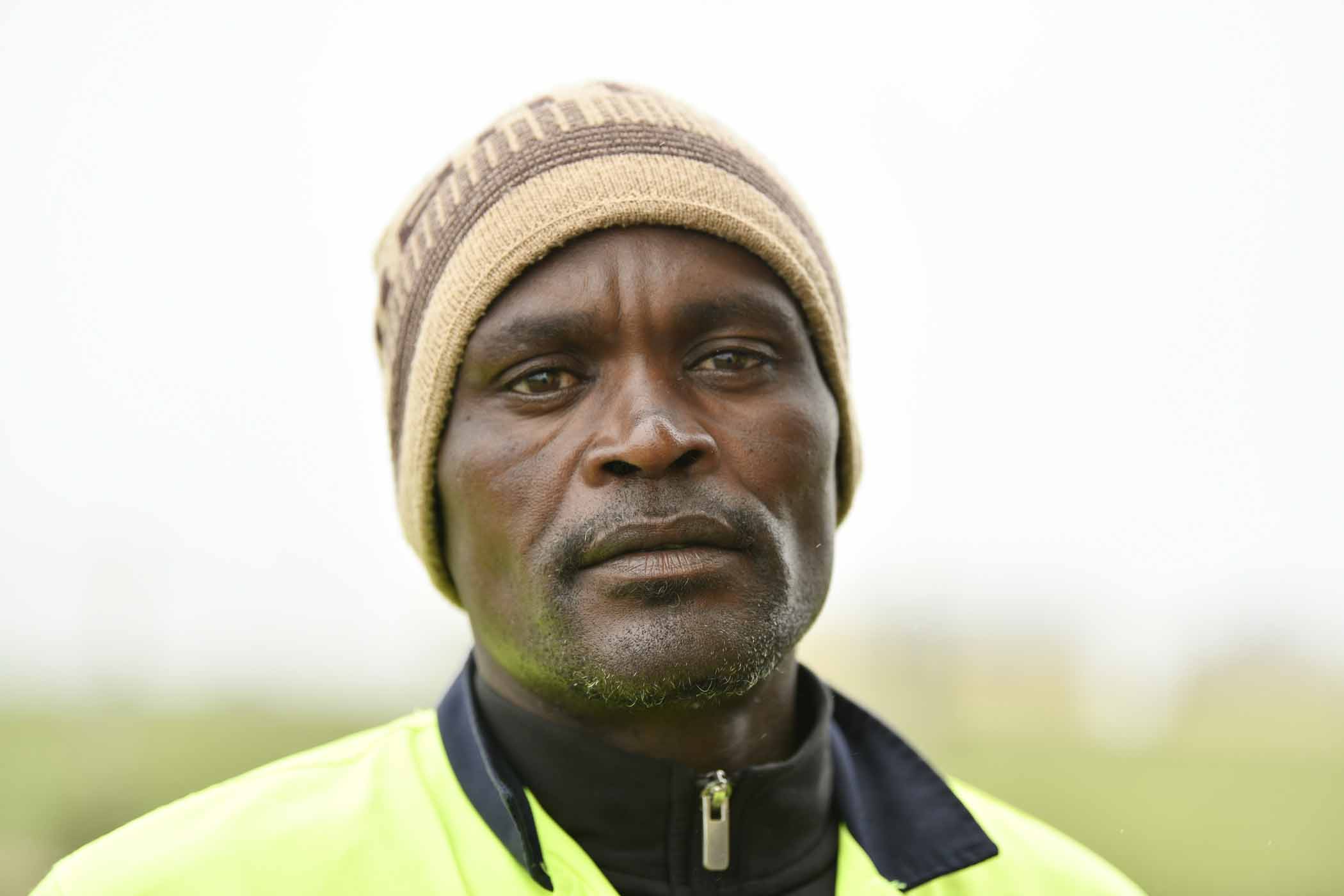
Ngquthu resident, Mbulelo Twani is concerned over the time it is taking for the facility to open given the amount of money and effort they had invested in the project.
PHOTO: Black Star/Spotlight
“We are in the same province, but the health service in our area is world’s apart from that provided in the city. It’s appalling to see the government turn a blind eye when it comes to rural healthcare services.
“In this province, rural areas are totally forgotten.
“Even though we were meant to have a mobile clinic at least every month, this service is often unavailable. Community members have been trying to get answers from [the] Amathole health district on why the mobile clinic no longer visits the village. They will only say that either there is no driver for the mobile clinic or it is broken,” Twani tells Spotlight.
“It seems that the department of health has no interest in us because none of their services are reliable. People used to get assistance from Dutywa clinic but recently they stopped and referred all people from Ngquthu to Nqabara clinic to get chronic medication. But it is not safe to cross the river.
“If it rains while you are on that side of the river, you will get stuck and you have to seek shelter with friends or relatives,” he said. DM/MC
This article was produced by Spotlight – health journalism in the public interest. Sign up for our newsletter.
"Information pertaining to Covid-19, vaccines, how to control the spread of the virus and potential treatments is ever-changing. Under the South African Disaster Management Act Regulation 11(5)(c) it is prohibited to publish information through any medium with the intention to deceive people on government measures to address COVID-19. We are therefore disabling the comment section on this article in order to protect both the commenting member and ourselves from potential liability. Should you have additional information that you think we should know, please email [email protected]"





 Become an Insider
Become an Insider
What an epic fail. Here we need Julius for the people
I find it very difficult to muster much sympathy for the people in this unfortunate position. The Eastern Cape is an ANC stronghold and it is reasonable to assume that the now disenchanted people of Ngquthu voted for the government they’ve got (and if recent by election results are anything to go by would probably do so again). As with the majority of South Africans they don’t seem able to make the connection between their vote and the dismal service delivery that they are the victims of.